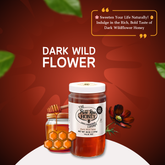Dry fruits
Dry fruits
Dry fruits or dried fruits are those fruits that do not contain a percentage of water within their components, which helps them to remain fit for human consumption for a long time. Dried fruits are those fruits that have undergone an extraction process to preserve them.
Drying has been known since ancient times as one of the means of storing food, and it is based on the idea of extracting water from food as it is the most damaging factor in order to preserve it for a long time. Among the most famous foods in this context, we find slaw, which is prepared from a group of dry ingredients that help to remain healthy and preserved from germs for the longest possible time.

By this process, the fruits are not damaged, as it absorbs water and liquids from the fruits, as when the liquid dries up from the fruits, germs and microbes will also dry up, so they are considered edible.
Yamish is a word that entered into use and a dictionary of the colloquial Egyptian dialect since the Fatimid era, meaning nuts and sweets from dried fruits.
It is recommended to acquire and consume dried fruits, taking into account the quality of dried fruits, the quantity that is consumed, and in particular those fruits that have undergone a drying process without adding preservatives.
It is also advisable to avoid sweetened fruits, consuming almonds and walnuts in their natural form without grilling (roasting) to save fatty acids and vitamin B without adding salts.

In addition, it is advisable to refrain from consuming dried fruits that have a bright color, as they are fruits with added industrial materials (known as E905). It is also desirable to consume dried fruits in moderation, and in a variety of ways as possible
It must be noted that in 100 grams of dried fruits about 270 calories. While 100 grams of almonds and walnuts contain 600-700 calories
It is recommended to eat dried fruits before doing physical activity, or if the level of sugar in the body is low, because they contain a high concentration of sugar that enables them to provide immediate energy.
Dried fruits are rich in fiber that fights constipation and promotes proper intestinal activity. But it is important for those with constipation to drink water
Dried fruits are rich in minerals, such as: phosphate, potassium, calcium, magnesium, vitamins A and B, iron, and fatty acids.


Dried fruits can be an alternative (and much better) energy source to chocolate and sweets for those who are underweight.
Dried fruits and nuts, when eaten thoughtfully, can be a nutritious snack .
Dried fruits contain many compounds and important nutrients that give the body many health benefits, and among the benefits of dried fruits of all kinds, we mention the following:
All dried fruits are very low in sodium, as well as potassium and fiber. The sugar in dried fruits is traditionally found in the form of glucose and fructose, and naturally dried fruits do not contain added sugars that can cause a range of health problems.
It is a rich source of insoluble fibers necessary to stimulate digestive movement, and to regulate and accelerate the passage of food through the intestine; Each 100 grams of raisins contains more than three grams of fiber, and the insoluble type of them makes up 70%.

100 grams of prunes contain more than eight grams of fiber, of which insoluble fibers make up 50%. It contains a high concentration of vitamins that have an antioxidant effect compared to fresh fruits, as a result of the drying processes that these fruits are exposed to, but the levels of vitamin C decrease when the fruits are dried

Benefits of some types of dried fruits Fresh fruits differ in nutritional value according to their type, and this applies to dried fruits, and below is an explanation of the benefits of some types:
Plum:
Or prunes, and it is obtained by drying peaches, and is a rich source of potassium, vitamin A and vitamin K, and has laxative properties, as it helps improve the movement of the digestive system and eliminates waste due to its high content of fiber and sorbitol
Raisins:
Raisins contain good amounts of dietary fiber, as eating half a cup of raisins can cover approximately 10 to 24% of the recommended daily intake of fiber that is useful for the digestive process, as it contributes to relieving constipation and increases the feeling of satiety, and raisins contain many Nutrients such as copper and iron, which are important for the formation of red blood cells, in addition to potassium, magnesium, zinc, selenium, and vitamin C, in addition to antioxidant compounds that protect the body from free radicals. To read more about the general benefits of raisins, you can refer to the article on the benefits of eating raisins.

dates:
Dates are a rich source of fiber, potassium, iron, and many plant compounds, and are considered one of the richest dried fruits with antioxidants that contribute to reducing oxidative damage in the body, as they contain magnesium, calcium, and phosphorous, in addition to containing small amounts of vitamin C, and some B vitamins.
Dried figs:
Each 28 grams of dried figs contains three grams of fiber that can help relieve constipation, increase the feeling of satiety for a longer period, reduce cholesterol and blood sugar, and it is also considered the best plant source of calcium that can help prevent osteoporosis, in addition to It also contains vitamin K, which is necessary for the normal blood clotting process, and high-quality antioxidants that reduce free radical damage to body cells.

Dried berries:
Dried berries contain large amounts of potassium, dietary fiber, in addition to antioxidants, but some types of berries, such as blueberries, lose quantities of antioxidants during the drying processes.
Dried Apricots:
Dried apricots contain good amounts of vitamin A, which is important for healthy eyesight and skin, and 100 grams of it contain approximately 25% of the recommended daily intake of potassium in addition to its iron, dietary fiber and antioxidants, which makes it a healthy snack.

Dried fruits provide the body and health with many health benefits as they contain large amounts of vitamins, minerals and nutrients that are important for body and health.







